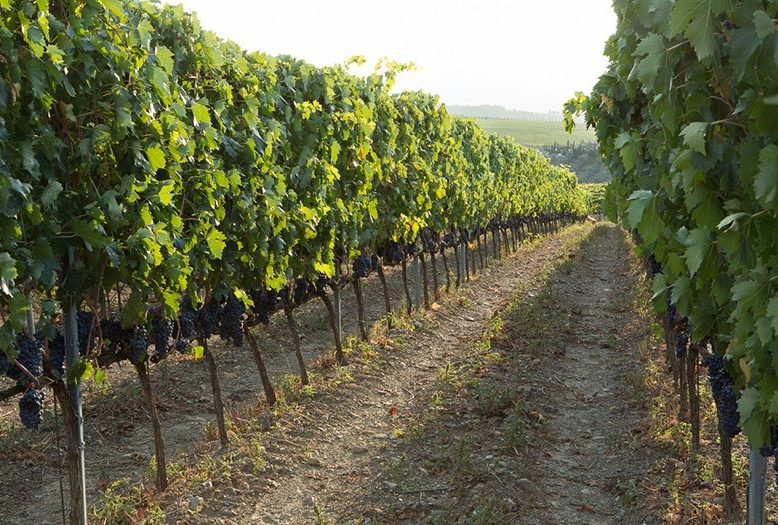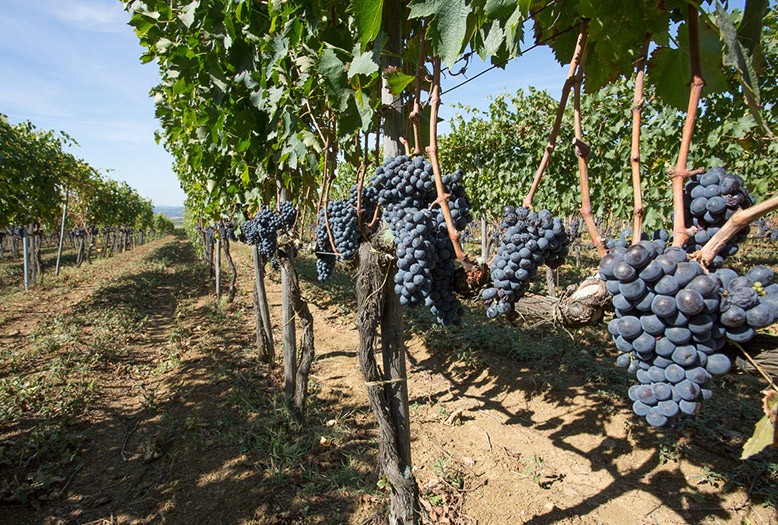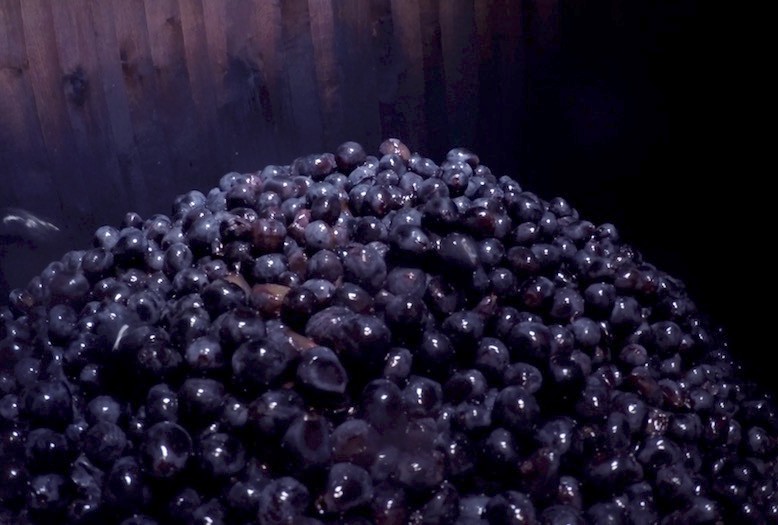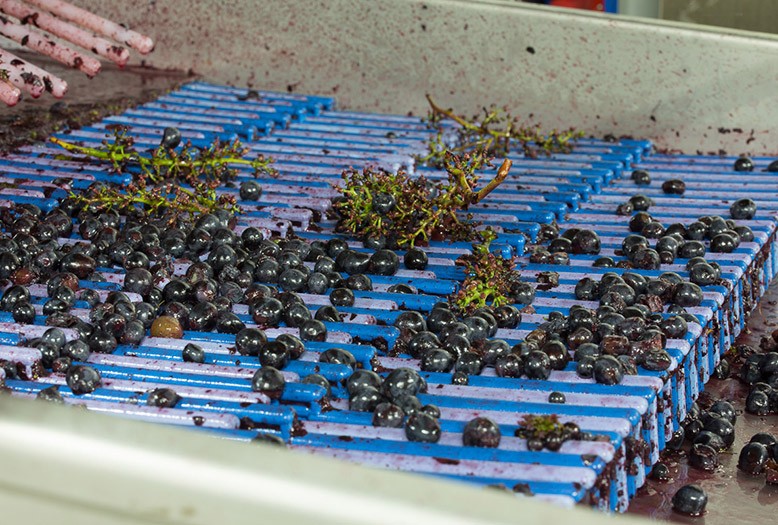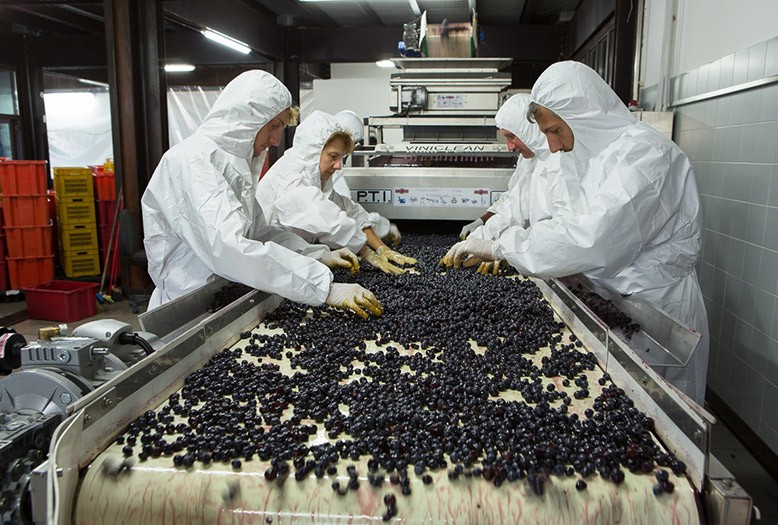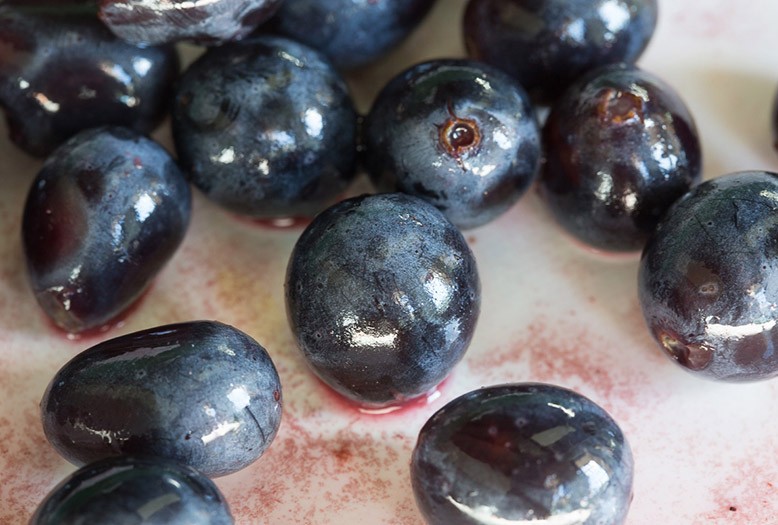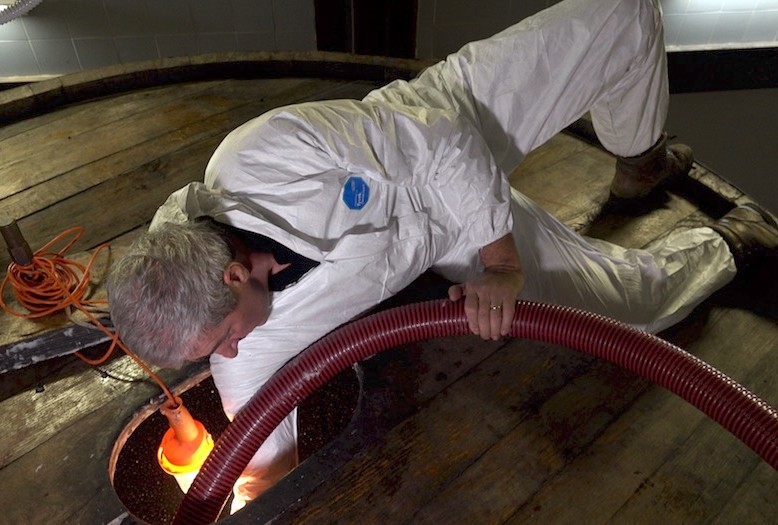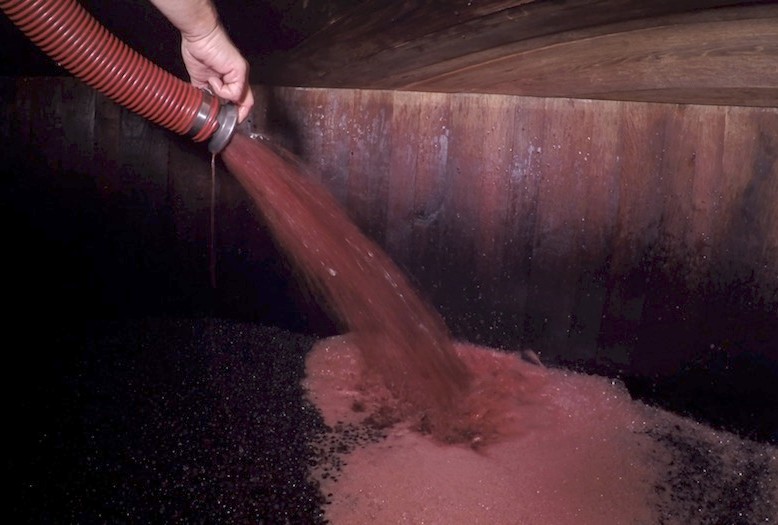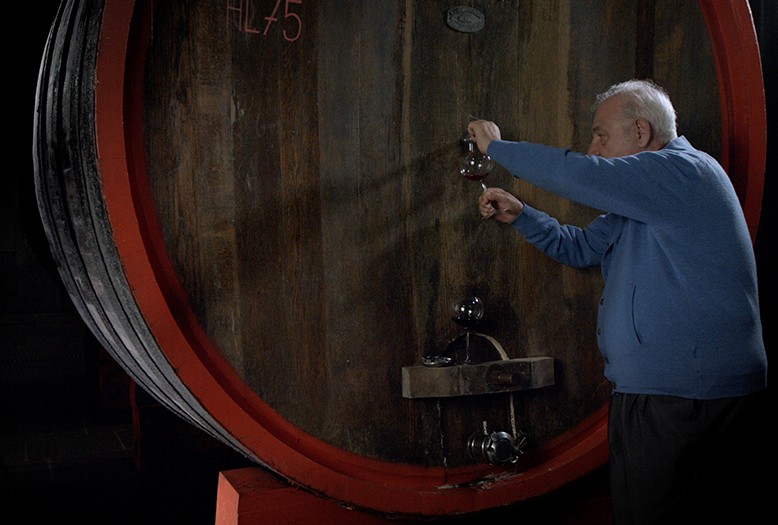
NATURAL WINEMAKING AT CASE BASSE, AGEING AND BOTTLING
I produce on average 15,000 bottles a year, but I drastically reduce this number if the vintage is not up to scratch due to bad weather.
27 out of 30 vintages have been excellent: this is a record. The best one was the historic 1979 vintage.
In any case, wine is always subjective: the same bottle may be worth 500 euros for one person and not even 1 euro for another.
– Gianfranco Soldera
Natural winemaking
Soldera only uses grapes from the winery’s vineyards: 100% Sangiovese variety, skilfully selected by hand, right down to each berry, to get only the best out of the territory.
Fermentation is completely natural: it takes place in large vertical Slavonian oak vats, thanks to native microorganisms which develop spontaneously in situ, and without using artificial yeasts.
Fermentation occurs entirely spontaneously in an ideal environment. The complex processes of nature are monitored by comparing experience that comes with decades of observation with daily analyses of the fermenting must carried out by research institutes.
Gianfranco Soldera and Giulio Gambelli
In January 1976 a collaboration and friendship began with the Master taster Giulio Gambelli, who Soldera used as a sounding board for his ideas.
Gianfranco’s nose was an implacable judge of the quality of Case Basse wines which, during the frequent tastings from barrels with Gambelli, always found the identity of sensations, with the common aim of obtaining the best.
Soldera said of him: “An exceptional person who taught me so much, even about how great Sangiovese is; Giulio has always been an extremely severe judge and this led to continual improvements in my wine.
The method we used was continual comparison while tasting from the barrels, with constant in-depth analysis of olfactory and taste perceptions.
This is definitely the only way to find out the reality of wines and their true value. The credit for the very high level of quality reached by Soldera wines is certainly due to Gambelli.”
The contribution of science to natural winemaking
Of the winery’s scientific partners, the longest standing relationship is with Professor Massimo Vincenzini’s team, which deals with physical-chemical and microbiological analyses on grapes about to ripen and right up to the bottled wine. And particularly microbiological analysis on fermenting musts to support the more important analysis: the subjective one, from tasting.
The must temperature is measured every 10 minutes, thanks to sensors that can remotely transmit data. The analysis of this data enables us to follow the winemaking processes step by step and to establish how and when to carry out manual pumping over.
Science and technology play a fundamental role in the production of a great quality wine, but without altering the natural winemaking processes.
The Soldera cellar: “The Wine Grotto”
The cellar at Case Basse is located 14 m underground and was built exclusively with natural materials and avoiding the use of concrete.
The Soldera cellar is a place made for wine: “a belly destined to house and protect something precious” to use the founder’s own words.
Here the temperature is kept constant, about 13°, with 85% humidity which doesn’t stagnate thanks to natural air circulation: these are ideal conditions for ageing a great wine.
The cellar was created by the architect Stefano Lambardi, based on Gianfranco Soldera’s design, and is built on three levels: a service area where the grapes are destemmed at harvest time and where the bottles are labelled and stored before sale. Then there is the winemaking area, containing large vertical oak vats, and lastly the heart of the cellar, where the wine matures and ages for long periods in large Slavonian oak barrels.
Ageing
While ageing, the wine is regularly tasted and analysed for chemical, physical and microbiological parameters. It is only thanks to this continual monitoring of the natural wine-ageing processes that we can establish the right time for racking, which is the only operation done at this stage.
Bottling
At Case Basse bottling is done directly in the cellar so that the wine can go from the barrel to the bottling machine while maintaining an ideal environment in terms of humidity and temperature.
Also the empty bottles remain in the same place before bottling. For the same reason, the bottled wine rests for a few months in the cellar before being labelled, packed and shipped.
Wine is a “living substance” and can be strongly affected by its surroundings and any movement it is subjected to.
At the end of this long and rigorous process, Soldera wine is only sold if it reaches the level of quality that meets the winery’s expectations.


